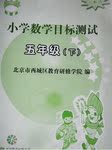题目内容
. The millions of calculations involved, had they been done by hand, _____ all practical value by the time they were finished.
|
A.could lose |
B.would have lost |
C.might lose |
D.ought to have lost |
B
【解析】略

 天天向上一本好卷系列答案
天天向上一本好卷系列答案 小学生10分钟应用题系列答案
小学生10分钟应用题系列答案 目标测试系列答案
目标测试系列答案
| |||||||||||||||||||||||||||||||||||||||||||||||||||||||||||||||||||||||||||||||||||||||||||||||||||||||||||||||||||||||||||||||||||||||||||||||||||||||||||||||||||||||||||||||||||||||||||||||||||||||||||||||||||||||||||||||||||||||||||||||||||||||||||||||||||||||||||||||||||||||||||
| There was once a man who had a donkey and a beautiful lapdog. The donkey was kept in a barn and had plenty of corn and hay to eat. Indeed, he was just as lucky as any donkey could be. The little dog stayed in the house and was well liked by the master. He was always playing and jumping about in an funny way and was allowed to lie in his master’s lap(膝盖). Meanwhile, the donkey had plenty to do. He pulled wood all day long and had to take his turn at the mill during the night. He often complained about his problems, and it bored him to see the lapdog living such an easy life, while he had to work so hard. Finally he thought to himself that if he acted the same way as the lapdog to his master, he would be treated the same way. So, one day he ran out of his barn and went fast into the house, where he began to kick about in a very strange way. Then, swaying his tail and imitating the funny behavior of the pet lapdog, he knocked over the table where his master was eating. He also broke all the dishes into very small pieces and did not stop until he jumped onto his master, trying to lick and paw him with his rough feet. Seeing their master in great danger, the servants thought it was time to help him. They beat the foolish donkey with sticks until he could not get up again. As he was about to die, he cried, “Why couldn’t I have remained satisfied the way I was? Why did I try to imitate a creature who was nothing but a lazy puppy after all?” 1. The underlined sentence in the first paragraph probably means ______. A. the donkey was treated well by his master B. the donkey was treated badly and cruelly C. other donkeys were satisfied with their life D. the donkey was not satisfied with his life 2. According to the passage, we know that every day, _______. A. the dog turned around the mill B. the donkey jumped in the house C. the donkey imitated the dog D. the dog accompanied the master 3. The reason why the donkey felt angry was that _____. A. he had to do a lot of boring work B. he envied the easy life the dog lived C. he was often beaten by the servants D. he was tied and couldn’t move freely |
The pickle(咸菜)jar as far back as I can remember sat on the floor beside my parents’bed. 21 he got ready for bed,Dad would empty his pockets and drop his 22 into the jar.When the jar was 23 ,Dad would sit at the kitchen table, 24 the coins,then take them to the bank,and put the rolled coins on the 25 ,saying 26 ,“These are for my son’s college education.He’ll 27 work at the mill(磨坊)all his life like me.”
The years passed,and I 28 college and took a job in another town. 29 while visiting my parents.I noticed that the jar was gone.It had served its purpose and had been 30 .My dad was a man of 31 words,and never lectured me on the 32 of determination and faith.The jar had taught me far more than any 33 could have done.
When I married,I told my wife Susan about the important part the 34 had played in my life as a boy.In my mind,it showed,more than anything else,how much my dad 35 me.No matter how 36 things got at home,Dad continued to drop his coins into the jar.
The first Christmas after our daughter Jessica was born,we spent the holiday with my parents.After dinner, Susan carried the baby into my parents’bedroom to feed her.Minutes later, Susan came back into the living room with a/an 37 look.She took my hand and led me into the bedroom.“Look,”she said 38 ,her eyes directing me to a spot on the floor beside the bed.To my 39 ,there,as if it had never been removed,stood the old pickle jar, the bottom already covered with coins.l walked over to the jar, dug down into 40 ,and pulled out a handful of coins.With the strong feelings choking(使…哽咽)me.I dropped the coins into the jar.
21.A.Until | B.Unless | C.Before | D.If |
22.A.coins | B.pickle | C.money | D.purse |
23.A.broken | B.filled | C.removed | D.locked |
24.A.pile | B.clean | C.roll | D.pack |
25.A.table | B.bench | C.floor | D.counter |
26.A.seriously | B.gently | C.proudly | D.anxiously |
27.A.still | B.also | C.always | D.never |
28.A.finished | B.started | C.entered | D.dropped |
29.A.Once | B.Again | C.Besides | D.However |
30.A.removed | B.stolen | C.sold | D.broken |
31.A.no | B.many | C.few | D.big |
32.A.worth | B.values | C.use | D.differences |
33.A.money | B.words | C.books | D.language |
34.A.coins | B.jar | C.determination | D.faith |
35.A.loved | B.treated | C.supported | D.encouraged |
36.A.rough | B.easy | C.smooth | D.wrong |
37.A upset | B.cold | C.worried | D.strange |
38.A.happily | B.angrily | C.loudly | D.softly |
39.A.surprise | B.delight | C.comfort | D.satisfaction |
40.A.the pillow | B.the jar | C.my handbag | D.my pocket |